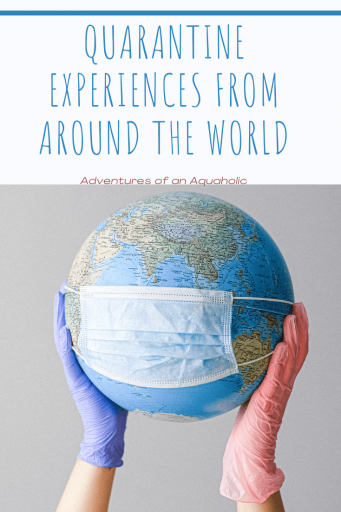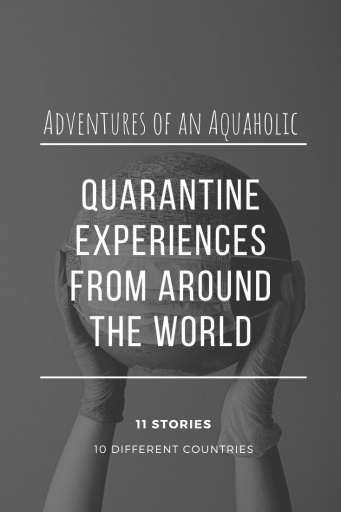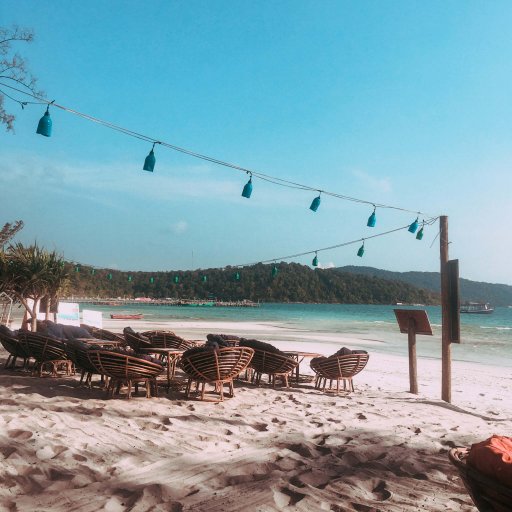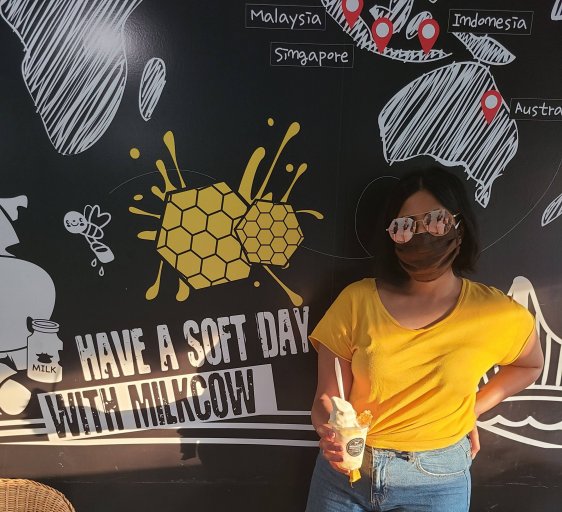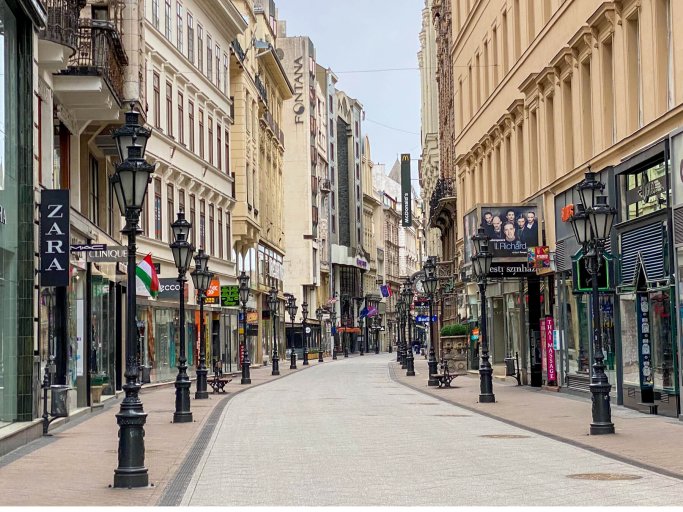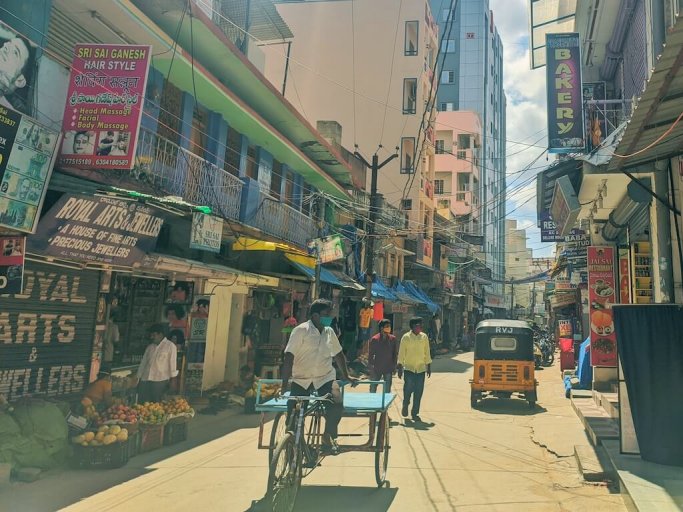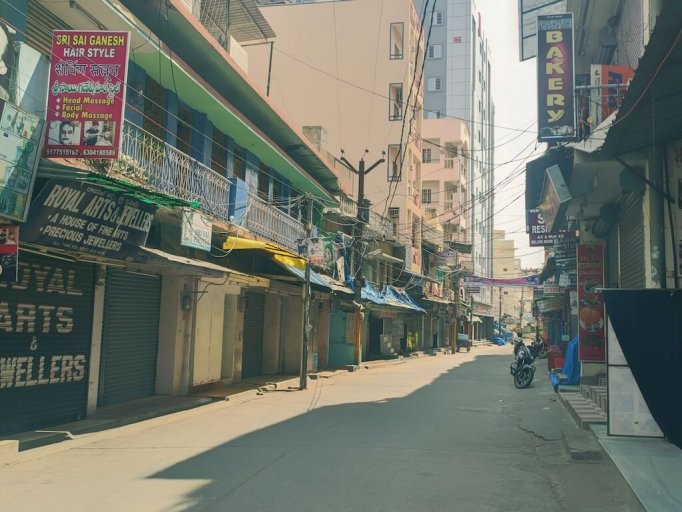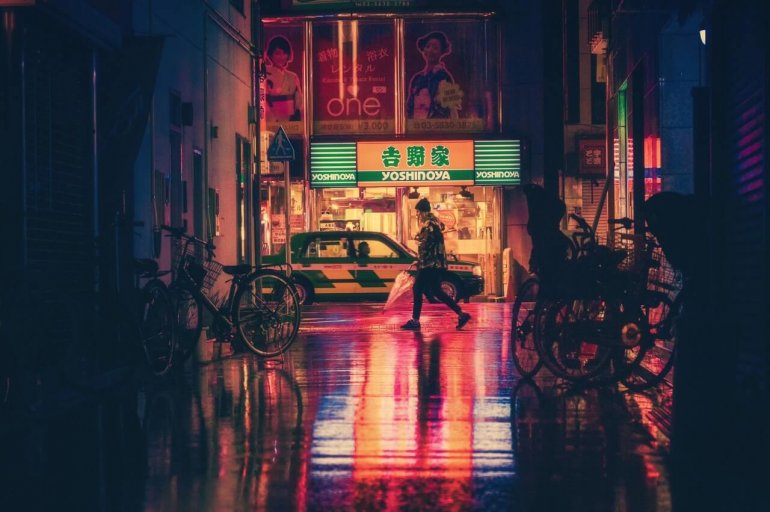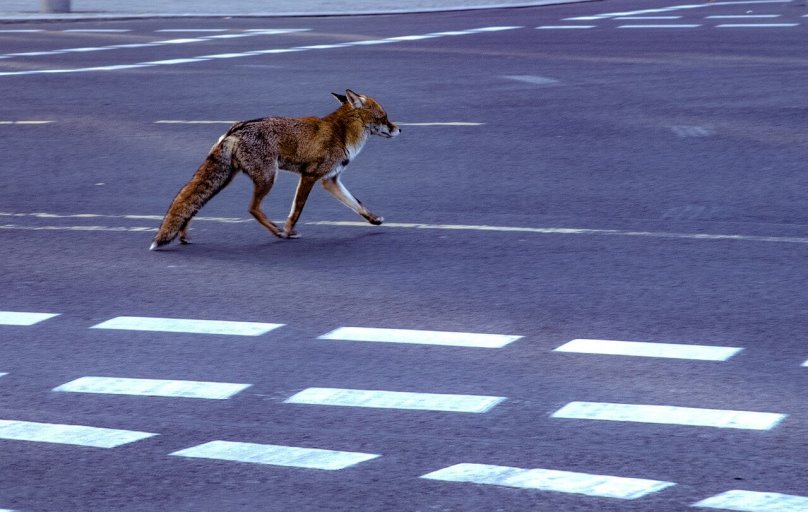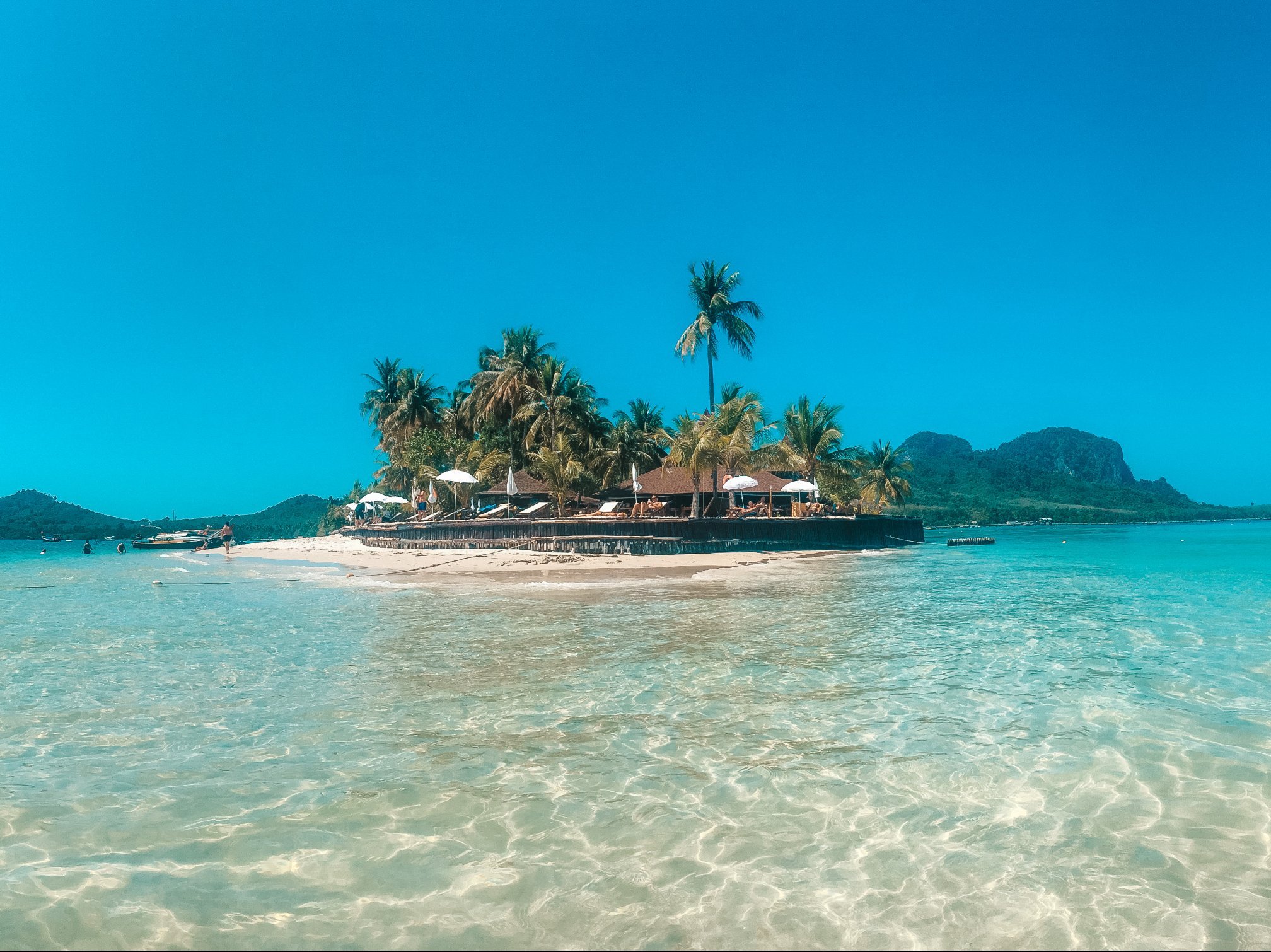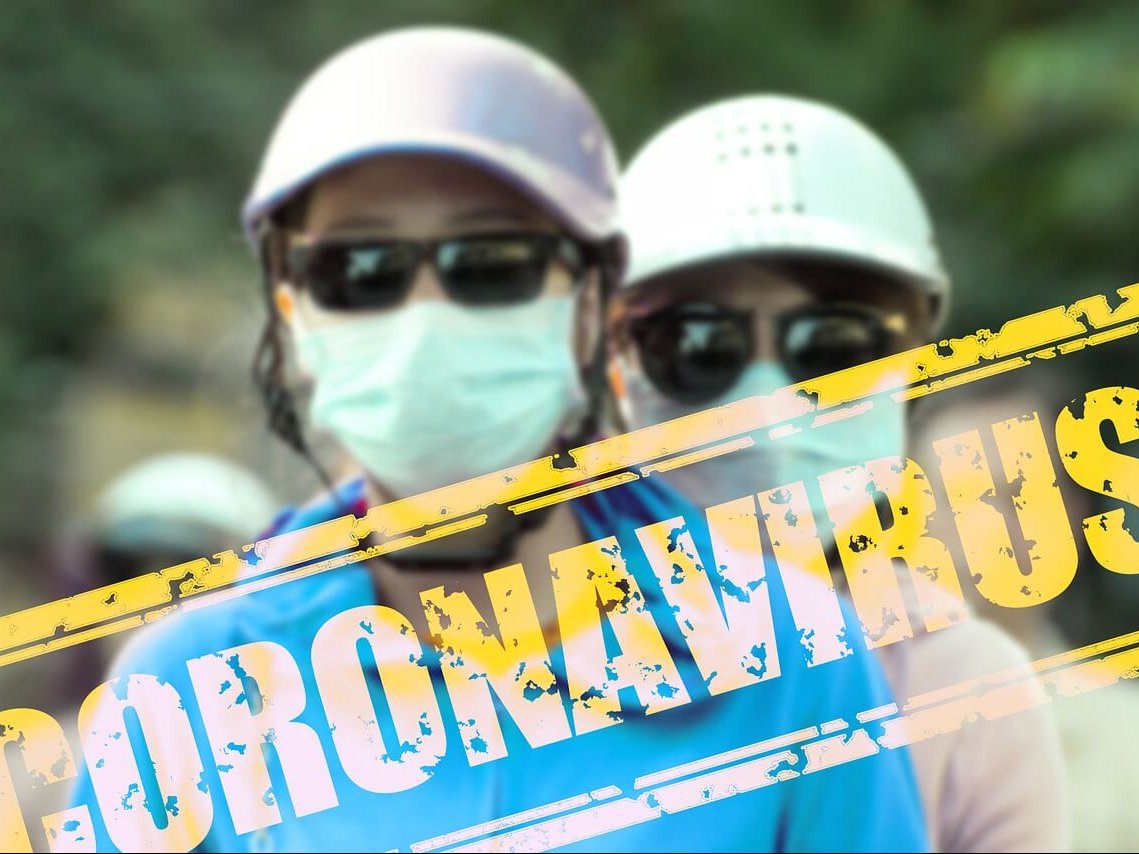Quarantine Experiences from Around the World
One of the great joys of traveling is learning about different cultures, whether that’s interacting with the locals, or sitting around with a group of fellow wanderers from every corner of the globe, exchanging notes on life. It’s always the little things I find interesting, the small variations on everyday functions that we take for granted. Such as the way Fijians will drink a pitcher of beer via a single shot glass that they pass around. Or how Europeans find it rude if you don’t make eye contact when toasting.
A week before the world’s borders closed and put an indefinite pause on travel as we know it, I found myself sitting on a beach in Cambodia, at a bar with a group of people from Britain, Belgium, Spain, possibly a few other places that I am now forgetting, and myself from the USA. I had taken this sort of multicultural, melting-pot scene for granted by this point, but the older English fellow who was on vacation visiting his son (the barman), found it absolutely fascinating to be sitting around with such a group of people. He was right. What a rare opportunity for some. Little did we know it would be the last such opportunity for quite some time.
Fast forward through some months of this crazy pandemic. We have been bombarded with information of all sorts: why we need to worry more, why we need to worry less, why we need to get back to normal, why getting back to normal is a terrible idea, and on and on. We’ve heard seemingly every angle on COVID-19, but believe it or not, there is one angle that I have been missing:
What is happening in the rest of the world?
And I don’t mean the tired headline about how everyone else has the virus under control except the US, no, we’ve seen a plethora of those articles. I’m referring to something a bit more ordinary and less headache-inducing:
What has lockdown looked like for everyone else around the globe?
What stories would all the travelers be sharing over a beer if we were still at that table on the beach in Cambodia?
So I reached out to some friends and fellow travel bloggers to ask what their quarantines have looked like. Some, like me, managed to get back to their home countries before flights grounded. Some decided to wait out the storm wherever they were. The following are eleven stories from ten different countries. They average around 300 words each, so you may want to read a couple of them here and there, or bookmark this and save it to read over a nice hot cup of coffee when you have a few minutes to indulge.

Belgium
by Kelly from Belgium
On the 18th of March 2020, Belgium went into lockdown because of COVID-19. In the beginning, it seemed like the government was underestimating the severity of the virus, so every week they made the rules stricter. The main rules included everything closing besides the grocery stores and the pharmacies. You couldn’t go out unless you really had to. When you did go out, you had to keep a distance of 1.5 meters from each other (they call it “social distancing”).
Most companies closed, and if they didn’t, the employees worked from home. You were absolutely not allowed to visit anyone, not even family. So, for people like me who live on their own, it was a very lonely time. But I think 90% stuck to these rules even though they were craving social contact. People did judge each other rather harshly if someone didn’t follow the rules, being blinded by “we have to stop the spread of the virus” and not understanding people are social creatures and do feel lonely and depressed at times.
We also counted our fatal cases a bit differently than some other countries. The Netherlands only counted the deceased that were actually caused by the virus. Whereas in Belgium, deaths that might have been due to the virus were counted. All deaths in the nursing homes were counted as “dead due to COVID-19”. This way of counting made it seem like Belgium was hit pretty hard by the virus.
As of the last few weeks, the government is allowing some things to return to normal again. We can visit our friends and family, shops are opening up, and we can even go out for dinner or a drink. Unfortunately, all the big festivals are cancelled (which is a big thing in Belgium, think of Tomorrowland) and it will take some time before everything will open up again. On the bright side, the spread of the virus is under control and we do have a bit of normality back in our lives. The questions now are: “Will there be a second wave which will cause a second lockdown?” And “How will we handle it this time around?”
Although not in her original quote, Kelly later told me that when socializing in Belgium was allowed again, citizens were confined to “bubbles” of four people. You were not allowed to change which four people were in your bubble from week to week. As the weeks went on, the size increased to ten, and some leniency with swapping out a person per week was introduced.
Canada (Toronto)
by Ilakkiya Maheswaran from Canada
blog: Wander is Calling
Early one morning in March, my manager called me to deliver the news that someone in the office had COVID and I would be working from home until further notice. In a matter of hours, COVID was declared a pandemic and I was potentially exposed to said pandemic.
I panicked slightly, but luckily I showed no symptoms and neither did anyone I was in contact with at work. As I started speaking to my friends and family, I learned that unless you were essential support, you were no longer allowed into any office buildings. The city was shutting down, and being safe meant staying indoors, away from our loved ones. I don’t know about you, but it felt like an apocalypse was looming upon us. The uncertainty was frightening.
Since I had a trip booked in April, I spent the month trying to connect with airlines and accommodations to request a refund or travel credit. It was a frustrating situation to have to put life on hold, but equally frustrating to learn that people were dying across the globe and the only thing we could do was self-isolate to stop the spread.
Fast forward 4 months, I am luckily COVID-free, and our government has eased up restrictions. The border still remains closed, but the province has been opening up in phases. We are currently in phase 2 of our reopening, which means we are required to wear masks in public spaces, gatherings cannot exceed 10 people and even then we must maintain a social distance of 6 feet. I am hopeful that one day, things will slowly return to some form of normal, and we can safely start exploring the world again. In the meantime, I will be carrying my mask with me everywhere I go.
Germany
by Jacey
(Originally from the USA; has been living in Spain and Germany since graduating from college)
February 28th, 2020 was the last day of Berlin normalcy for me. There were reported cases of corona in other German cities but we were blissfully unaware. That night we took public transport, celebrated a company party of 700 people and later we headed to a techno club to dance and sweat with strangers. The beginning of Corona panic started immediately after. Germans call panic buying Hamstern, in an ode to rodents stashing nuts. Pasta and rice and of course toilet paper vanished almost overnight. By the second week of March my office had transitioned to be completely remote.
We spent a lot of time thinking about what we would do when lockdown came. Restrictions increasingly tightened. My birthday was recognized with three people and a box of Hello Fresh.
Everything closed, Merkel banned gatherings, and we all waited for the inevitable…but a lockdown actually never came to Berlin. Merkel would address the nation weekly; she also quarantined when she came in contact with someone. Through her regular updates something became clear to me. This place has a history that includes Jewish ghettos and laws on where and when Jews (among other marginalized groups) could move about the city. This City has a history that includes the erection of the Berlin wall, physically tearing families and loved ones apart. Just 30 years ago, moving around the city was illegal and dangerous. As the Chancellor will tell you, freedom of movement is a human right.
We were restricted, of course, but we were free to move about, to enjoy simple luxuries that many neighboring countries did not. We went on long bike rides, exercised in the park, had picnics, watched live streams of clubs, got takeout, bought masks. As the days got warmer the pasta aisles returned their stock. A lot of people bought inflatable boats to go in the canal.
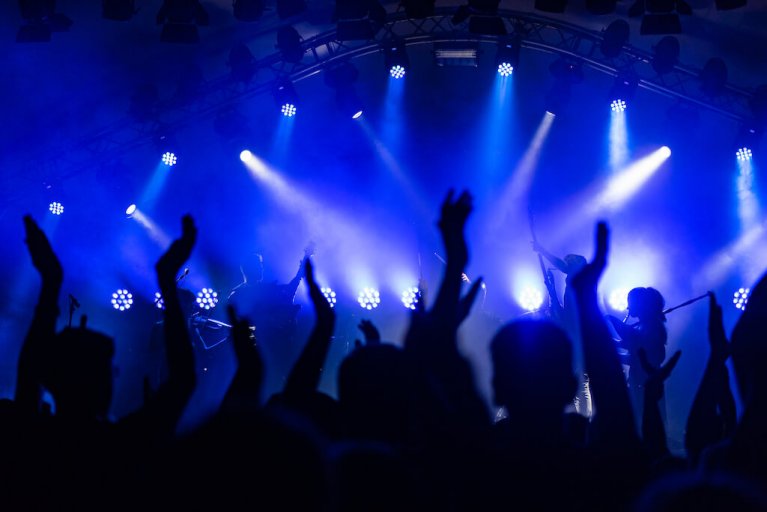
Hungary
by Linda Gerbec from the USA
blog: Wind and Whim
My husband Steve and I are from the U.S. and travel full-time. In January Steve broke his pelvis while skiing in Bulgaria. By mid-March, he was able to travel. We decided it was wiser to head to our next destination than to make the long trip back to the U.S.
We arrived in Budapest, Hungary one day after they declared a state of emergency. Within days, stores and restaurants closed. They remained closed for three months.
Our once-active life turned sedentary. We spent more time on our computers and binge-watching TV. I did several jigsaw puzzles and worked on my blog. I ate too much chocolate and I drank too much wine. The two things I missed the most were eating in restaurants and the treadmill (yes, that surprised me too).
We only ventured out to buy groceries or take walks. It was wonderful to see the world-class sights free from crowds. I fell in love with Budapest during these walks.
Hungary and the U.S. followed similar paths, including shutting down non-essential businesses and sheltering at home. There were several differences though. Hungary shut down the entire country quickly after its first confirmed case of COVID-19. In the U.S., shutdowns were done state-by-state. Many states did not shut down until two months after the first confirmed case. Another difference was that the leaders in Hungary took the virus seriously, while in the U.S. the president has downplayed its severity.
Because of the high rate of COVID-19 and civil unrest we do not want to return to the U.S. right now, so we are applying for a one-year residence permit in Hungary.
India
by Mukund & Riddhi from the UK
blog: Discover New Paths
In February 2020, we left our jobs in the UK to go traveling for 6 months, filled with excitement.
We explored Myanmar first before arriving in India in March. After 2 weeks in the north, we planned to check out Kerala in the south. Then we found out everything was shut… Kerala was the first state with a COVID outbreak!
So we decided to visit Puttaparthi, a small town we had visited many times before.
But when we got there, things changed rapidly. Within two days, the entire country suddenly went into lockdown. Hotels weren’t letting new guests stay, and the streets were empty – no rickshaws, no street vendors, not even any beggars! This normally buzzing town was quieter than ever.
Luckily a family friend let us stay in their empty flat.
Across India, cases soared in densely populated cities, and hospitals became overwhelmed. Police beat people for breaking rules. Migrant workers were stranded thousands of miles from home with no way back, facing hunger and poverty.
But our experience was very different.
With only a handful of confirmed cases in Puttaparthi, shops slowly re-opened and vendors were back selling on the streets. Locals were kind to stranded foreigners who needed help and the police distributed free food to the poorest.
We decided against repatriation flights as we hoped to continue travelling. But over time, it became clearer that many countries would keep their borders closed.
So we spent our time living slowly and simply, watching TV shows and movies. Daily walks by the river and fields nearby, soaking up the sunshine. Eating fresh fruit everyday – mangoes, melons, papaya, you name it. And then we decided to start our blog!
We’ll eventually return to the UK, but will really miss this lovely town… our home for over 4 months.
Japan
by Dasha
(Born in Russia, grew up in the USA, and has been living in Japan since graduating college)
Japan kept to the “everything is fine and under control” mentality, maintaining that “the Olympics will not be postponed” for the longest time. Meanwhile, testing was almost completely inaccessible. They went with the “cluster identification” theory, which sounds good in theory but does not actually work without widespread testing.
After the Olympics were postponed due to the “worsening situation abroad” the numbers started going up, and Japan started releasing statements that they were “considering maybe declaring the state of emergency (maybe),” while maintaining that “unlike the United States, per our constitution we cannot establish a lockdown.”
The state of emergency involved lots of politicians urging people to stay home, and what seemed like 30% of the population taking up jogging. Everyone was jogging.
While most people did seem to be more careful, there were private gyms, beauty salons, massage salons, all claiming that they were “privately owned and therefore safe!” They urged their social media followers to ”use Corona remote work to take care of yourself!”
The two things that make the way Japan has handled, and is still handling it so perplexing to me, is the “rule-following culture”, and the obsession with gaman,* while not being able to exercise any of it.
*Gaman refers to the Zen Buddhist idea of “enduring the seemingly unbearable with patience and dignity.”
There were people getting into fights because store clerks didn’t use the little plastic trays to hand you your change; restaurants/bars/izakayas opened, “but only until 9 pm because COVID spreads at night.” People wear masks, which they’re used to wearing for hay fever, yet they pull them off their faces to cough…
And while most people are willing to gaman or “persevere through fever to go to work” – because that is a virtue in Japanese work culture – in the same work culture, nightlife cannot be gamaned by any means.
Peru
by Jess Agostino (Jagsetter) from the USA
blog: Jagsetter – Travel Guide & Blog
I’ve been in Lima, Peru during the Coronavirus Pandemic. I was supposed to travel to New York City, where I’m from, on March 16. Peru went into full lockdown and closed their borders to international travel the same week that I was supposed to fly home. I decided to ignore the chaos of traveling back to the USA and stayed in Peru, where I’ve been ever since.
We were on a strict lockdown for over 100 days. During this time, we were only allowed to leave our apartments to go to the supermarket, pharmacy, or hospital. Unlike my friends in the USA, we weren’t allowed outside for leisurely walks or exercise. There were military and police officer checkpoints everywhere. If someone broke the law, then they were taken to the police precinct. I don’t speak the best Spanish, and was worried about having a confrontation with the police… so I barely left, and instead sent my Peruvian roommates out to do most of the shopping for me.
It’s been strange to see how different the experience has been for my friends/family in the States. At times, I felt like I was living in a completely different universe than they were. They were all so free, while I was stuck inside a house. I also kept thinking about how beautiful Peru was, and yet, I wasn’t able to see any of it while trapped inside.
Our quarantine has been over for two weeks now. A lot of stores are still not open, but we are able to roam freely which makes all the difference.
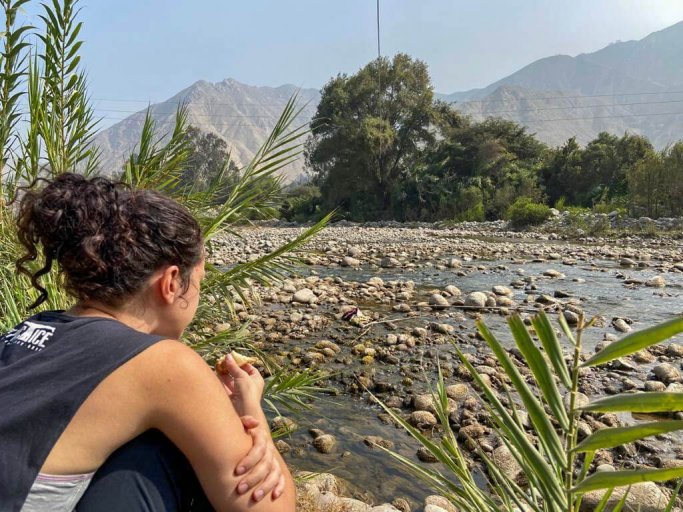
Thailand
by Lauren Mae from the UK
blog: Lauren Mae Travel
The following is a short excerpt from Lauren’s timeline of events during her lockdown period in Thailand. To read the full post, click here.
9 April 2020
Koh Lanta is in full lockdown as of tomorrow. With a few confirmed cases on the island, I appreciate it being taken seriously now rather than later. Shops are only open until 12pm and beaches are closed. The landlady isn’t keen on me going out at all and would rather I give her a list of anything I need. With government officials blaming ‘dirty tourists’ for the spread of the virus, she worries that attitude has trickled down to local authorities.
It’s been an uncertain few days as the Krabi government has ordered that all hotels must close and all tourists be lumped together in one of three places with no exceptions. Except for those that weren’t accurately translated from Thai until a few days later: if you’re staying in a place for an extended amount of time, you’re fine; if you got to the island before a certain date, you’re fine staying put too.
It’s outrageous how much false information has been allowed to propagate around this and how many police and immigration officials have drawn up their own interpretations of the policies.
That being said, I’m trying to leave worrying until it’s necessary rather than exhausting myself with it now. The place I’m staying is being very accommodating with four kittens to play with and a broomstick to beat off the monkeys if they dare come too close.
Transit (Spain, Italy, & Argentina)
by Gabriel Dupén from Spain
Follow Gabriel on Twitter
The following is a short excerpt from Gabriel’s experience transiting through Spain, Italy, and finally making his way to Argentina before the borders closed. To read the full post, click here.
As Coronavirus was spreading, the Italian government encouraged people to remain at home. The #IoRestoACasa (#IStayAtHome) fostered by the media was totally dismissed. Pubs, restaurants, clubs, and even concerts were crowded. As if it were an Italian movie of the sixties, Sicilians were blaming the northern Italians for spreading COVID-19 to the rest of the nation. They felt confident that Coronavirus affected both Lombardians, and the Chinese, who created the virus. Moreover, some said that the illness would never arrive in Sicily, due to its location “far” from Milano.
UK
by Hamish Broughton from the UK
blog: My Travel Fix
It was Albert Einstein who once famously said: “Insanity is doing the same thing over and over again and expecting different results.” I’m afraid to say that by this definition I have been well and truly insane for quite some weeks. Nobody could have anticipated the impacts of Coronavirus on our day-to-day lives. I was certainly no exception. As a photographer, writer, traveller, and explorer I feel like I was hit particularly hard by the lockdown. I’m not good at sitting still. And I am certainly not good at remaining indoors.
Even so, thus was my fate from the end of March to the present day, as London tightened its restrictions. Confined to quarters in a tiny London flat, staring out the window without even a garden or balcony to enjoy. There are only so many times you can turn on the TV, hoping something good will be on. There are only so many hours you can spend in front of Netflix before your head starts hurting, so many times you can open the fridge to go for a snack, knowing full well you ran out of snacks days ago.
This pandemic has been strange and even cruel for many of us. Particularly, for those of us who live to travel and move freely across the earth. If I have learned anything in these past few months, it is not to take that passion for granted. Who knows when I’ll be able to explore it again fully. For now, I’m glad to be alive. Glad my family are safe. And, despite my wretched existence right now, I think of those who have it far, far worse than me.
UK
by Kristin (originally from Norway, now calls the UK home)
blog: Adventures with Ensuite
I love the hustle and bustle of London. Whatever the time of day, there is always noise – traffic or people chatting. I never thought I would be able to open my city centre window and hear nothing. But silence is what lockdown has brought. It has been so quiet, in fact, that the other day when my husband went out to empty the bin, it was not a neighbour he met, but a fox, standing 2 metres away, wondering what my husband was doing on his street.
Life has started to come back and the queues at the supermarkets are reducing. The lack of toilet paper and the empty shelves during the first few weeks are a thing of the past. When I left the office in March, I thought we would all be back in two weeks, but working from home continues. As one week merges into another, 4 months have passed. I am sure it will be at least another 4 before we are all back.
The kitchen table has become my office and I have settled into a different routine. Lunch time is used to explore my local neighbourhood and I have found streets I didn’t know existed, despite having lived in the same flat for over 10 years. Another new discovery is Zoom. With my family based in Oslo, Norway, I can’t believe I had never used this before.
The noise is fading as we gradually move out of isolation, but I hope I will continue to appreciate the smaller things in life. Who thought that going for dinner with friends, or finding a coffee shop that is open could bring such joy.
Pin it
